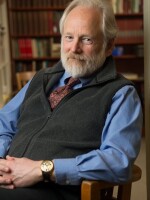These days I flinch when I hear “You’re a historian”, words prefacing a bid for supposedly professional insight into the current election. Alas, to mix the words of historian Barbara Tuchman with those of St. Paul, history is a distant mirror into which we see darkly. That doesn’t stop the questions.
“Is this our scariest election?”
Adams-Jefferson in 1800 was probably the worst, because the system was new. No one knew if Americans could manage a peaceful transfer of power from one party to another. Many regarded Andrew Jackson’s ascendency in 1828 as the end of the republic. 1860 led to Civil War. William Jennings Bryan’s populist crusade of 1896 threatened to repeat the French Revolution
“Is it the nastiest?”
Again, 1800 leads the league here; though Cleveland-Blaine in 1884, which featured bribes, an illegitimate child, and religious bigotry, was pretty tough; as was 1928, when the Ku Klux Klan whipped up the anti-Catholicism that helped doom Democrat Al Smith.
“Are these the most unpopular candidates ever?”
Probably, though Nixon-McGovern in ‘72 comes to mind, as do Warren Harding and virtually any candidate from the 1850’s. More people voted against Abraham Lincoln than for him; some southern states wouldn’t allow his name on the ballot.
“Will either candidate keep campaign promises?”
No.
The broader the promise, the less likely it’ll be kept. For example, in 1916, 1940, 1964, and 2000 we elected candidates promising peace in troubled times; each then led the nation to war.
In ‘68 Richard Nixon campaigned on a “secret plan” to end the Vietnam War. He extended it. Guantanamo’s still open. But back in 1844, James K. Polk did keep a promise – sort of. Pledging war with Britain over the Pacific Northwest, if necessary, he actually fought Mexico, but fulfilled his promise of territorial expansion.
“If this was a novel, who would have written it?”
Mark Twain, William Faulkner . . . Charles Dickens. Stephen King?
“What hope can history give us?”
History doesn’t give hope. It offers perspective and chances for new insight. At the moment, it seems to suggest that far from learning from past mistakes, Americans continue to discover new ways to screw things up.





